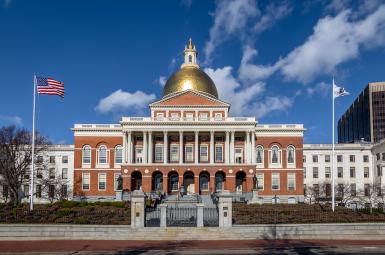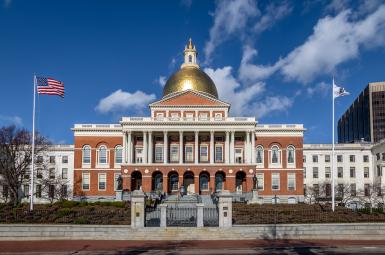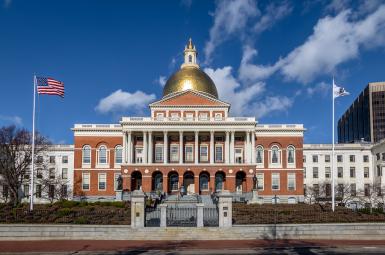On September 11th, Governor Healey filed her administration’s closeout supplemental budget for Fiscal Year (FY) 2024; roughly two months after the official last day of the fiscal year. A closeout supplemental budget is filed and passed each year; its purpose being to resolve all outstanding deficiencies and ensure that the fiscal year ends in balance. The enactment of this final spending bill will allow the comptroller to “close the books” on FY 2024 and finalize mandated financial reports.
The wide swing indicates the state is still navigating an atypical time, particularly with collections in some areas, such as sales tax revenue, still falling below expectations, said Doug Howgate, president of the Massachusetts Taxpayers Foundation, a business-backed budget watchdog group.
Two weeks ago, the House Ways and Means Committee released its budget proposal for Fiscal Year (FY) 2025. While the budget development process for the upcoming fiscal year will consume much of the attention in the coming weeks, the FY 2024 fiscal picture remains unclear and will require careful monitoring.
Earlier this week, the Healey administration announced a $1 billion tax revenue shortfall for FY 2024, downgrading the revenue benchmark from $40.41 billion to $39.41 billion. They also released a plan to solve the shortfall which includes approximately $375 million in net mid-year (9C) budget cuts. In total, 66 budget line-items were reduced by $545 million in gross spending. These cuts are accompanied by approximately $169 million in lost revenue, resulting in an estimated net impact of $375 million.
The Healey Administration announced a $1 billion revenue shortfall, attributable to below benchmark revenue collections to date.
- The FY 2024 revenue benchmark has been downgraded to $39.410 billion.
- After accounting for the shortfall and the impacts of tax relief, expected FY 2024 revenue collections total $38.833 billion.
Doug Howgate, the president of the Massachusetts Taxpayers Foundation, said the numbers suggest to him that it’s time for Gov. Maura Healey to revise downward the tax revenue forecast for this year by about $1 billion and begin to pare back spending using her power to make unilateral cuts.
State revenues including surtax collections need to increase 5.7 percent over the fiscal 2023 total to hit the fiscal 2024 benchmark, according to Doug Howgate, president of the Massachusetts Taxpayers Foundation. Five months in, the growth so far has been only a single percentage point, well below the necessary pace and significantly less than the 6.2 percent annual spending increase authorized in the state budget.
On October 19th, the Healey administration announced its plan to pursue the federal funding opportunities available through the Infrastructure Investments and Jobs Act (IIJA), Inflation Reduction Act (IRA), and Creating Helpful Incentives to Produce Semiconductors Act (CHIPS). The proposal would establish a new trust fund – capitalized through interest earnings on the Stabilization Fund – that can be leveraged to draw down on federal funding opportunities, fund PAYGO capital projects, and support debt management strategies.
On August 9th, Governor Healey signed the Fiscal Year (FY) 2024 budget; sending back $272 million in gross spending vetoes ($205 million net), amending 8 outside policy sections, and vetoing one policy section. The Governor’s vetoes eliminate the budget’s reliance on $205 million in one-time resources, which MTF highlighted as a fiscal concern in our Conference Summary. Thirty-three budget accounts are impacted by spending vetoes, with most funding levels being reduced to what was originally proposed in the Governor’s budget.
The House and Senate are set to enact a Fiscal Year (FY) 2024 budget, totaling $56.2 billion. The conference committee report was filed on July 30th, one month after the start of the new fiscal year. This year, separate tax bill negotiations, the new income surtax, and an uncertain FY 2023 revenue picture imposed additional complications on the budget negotiation process.








